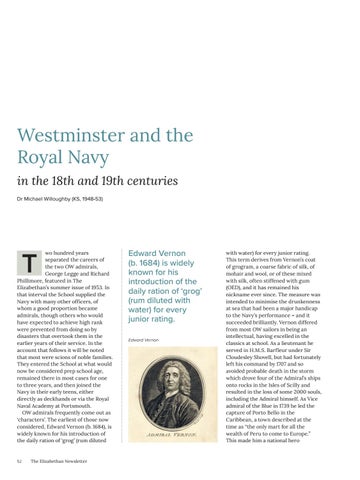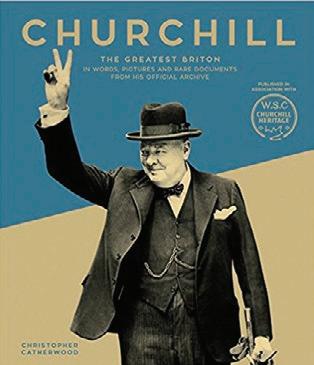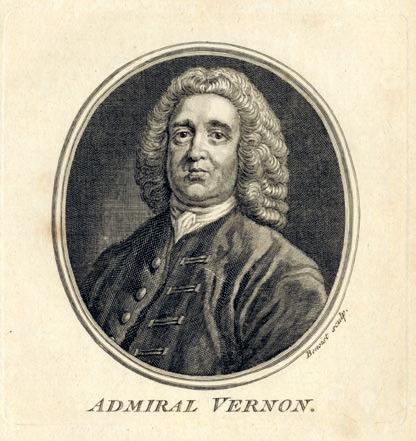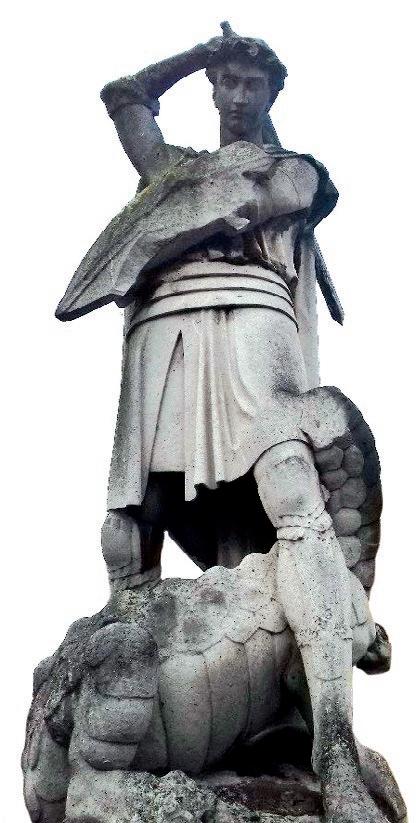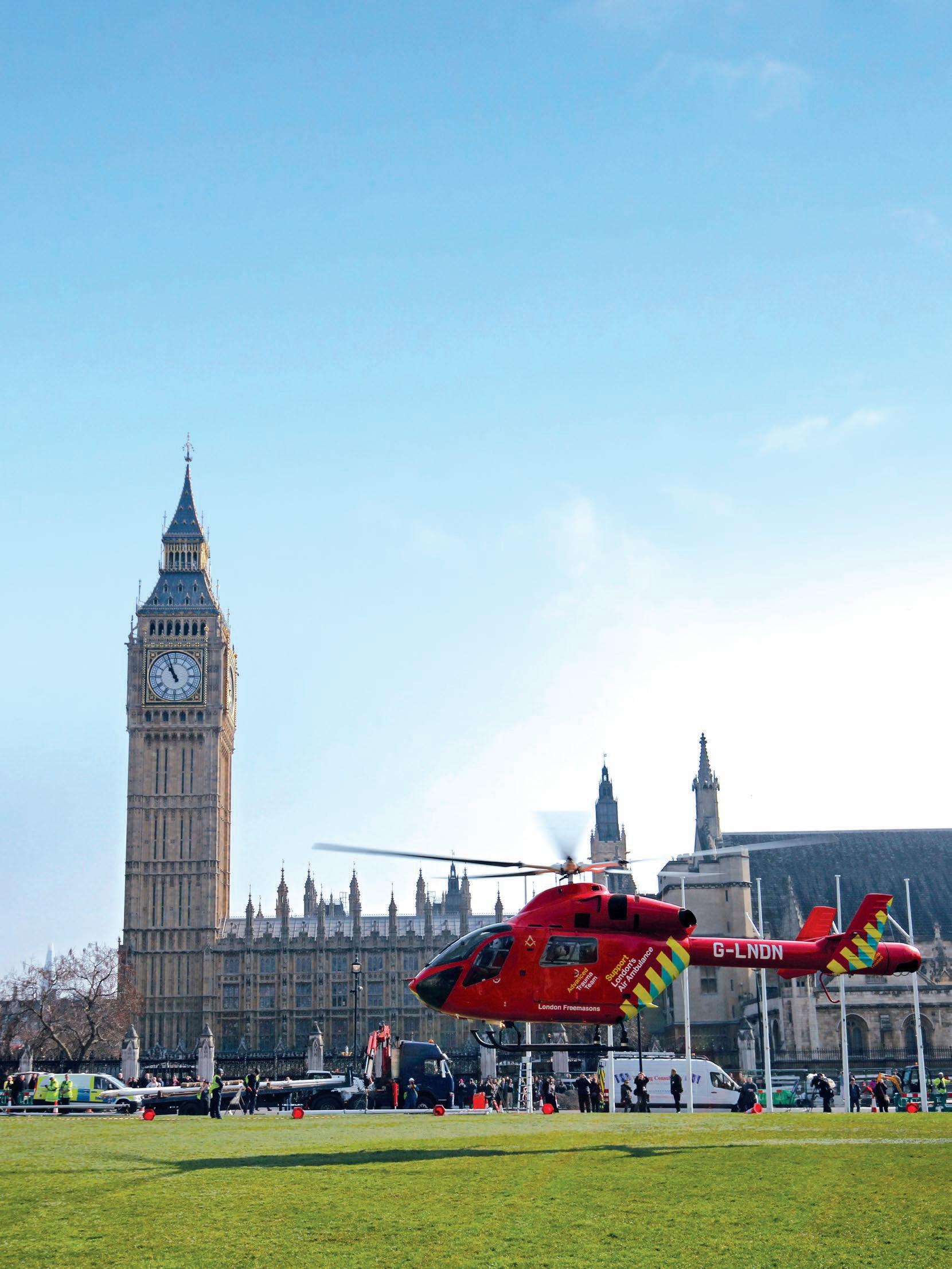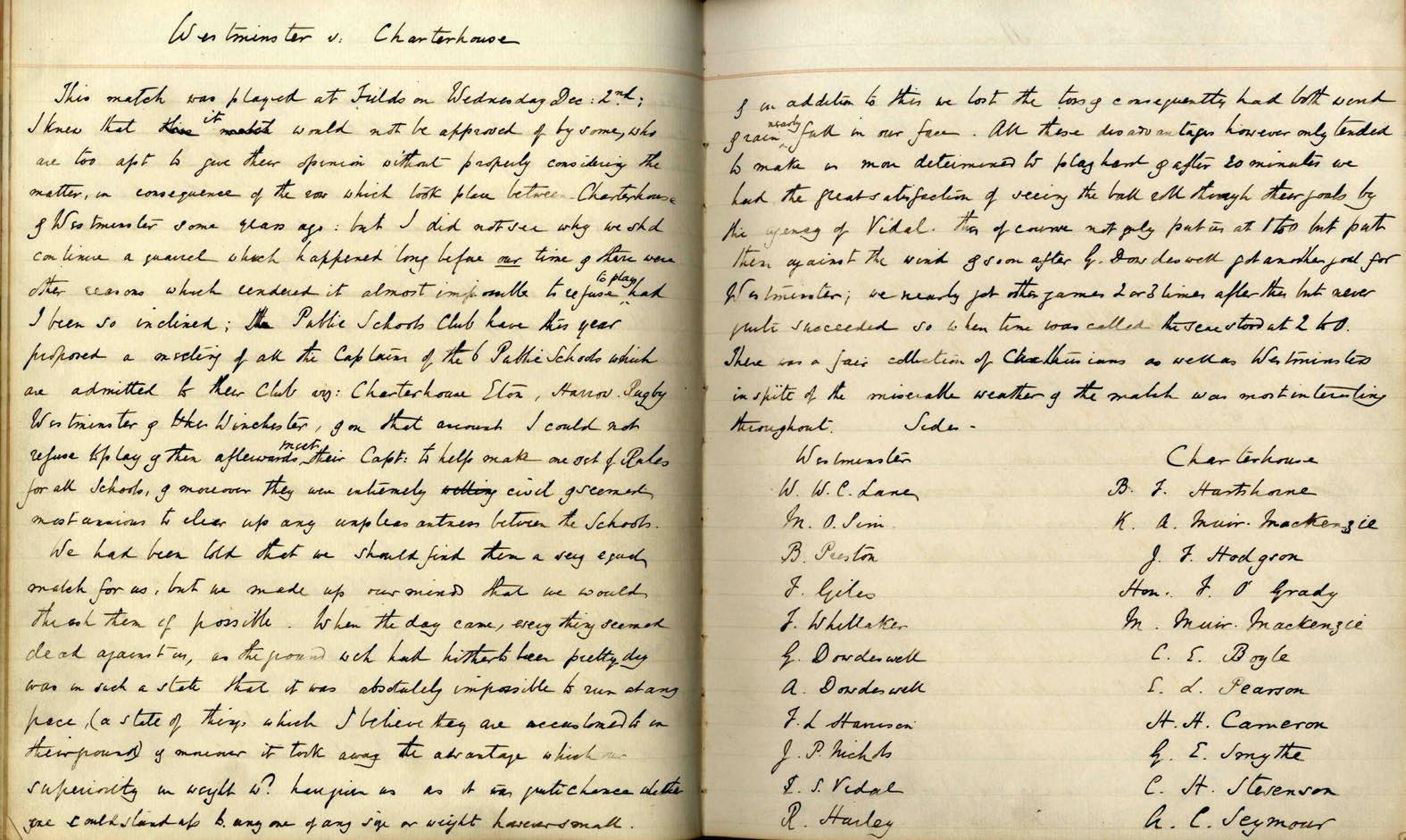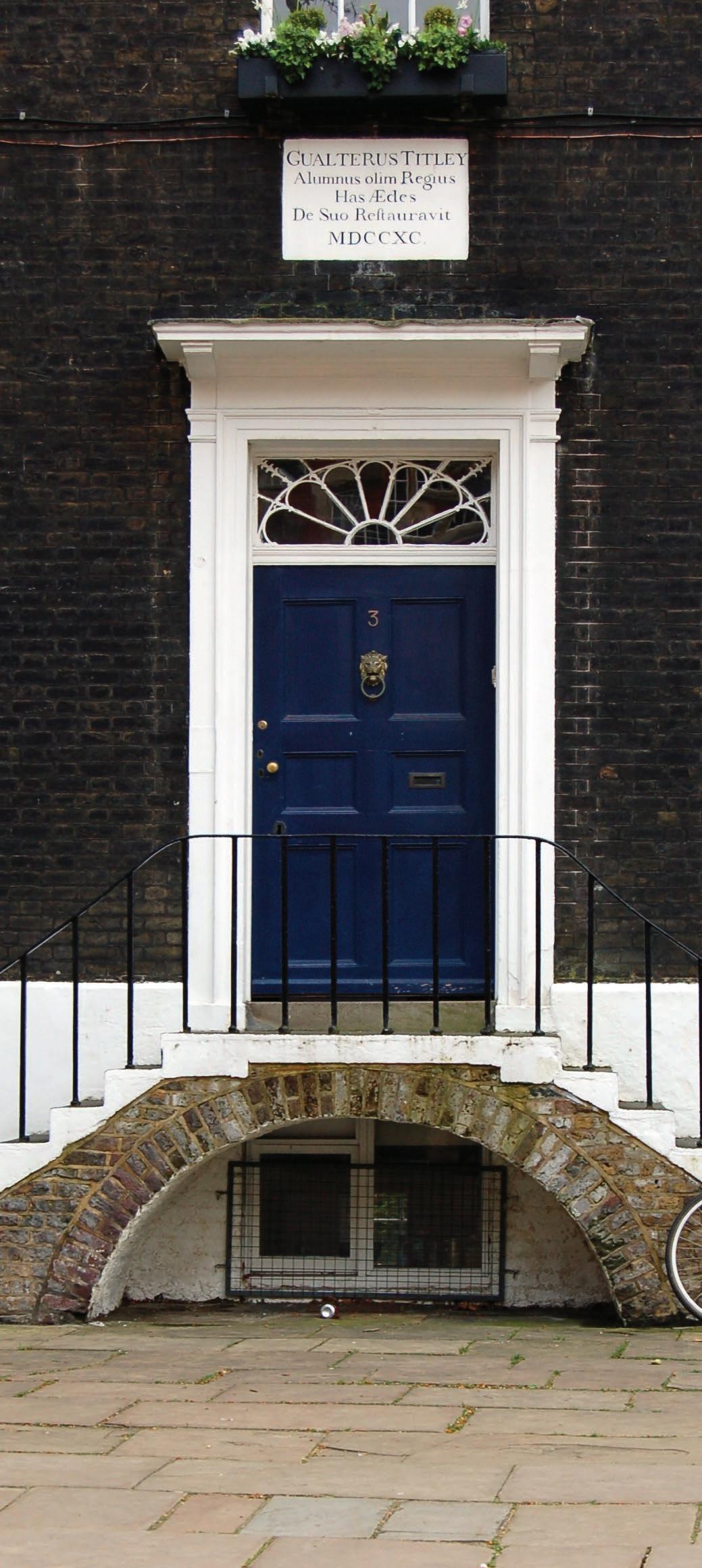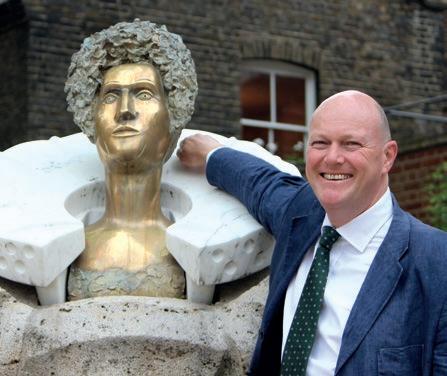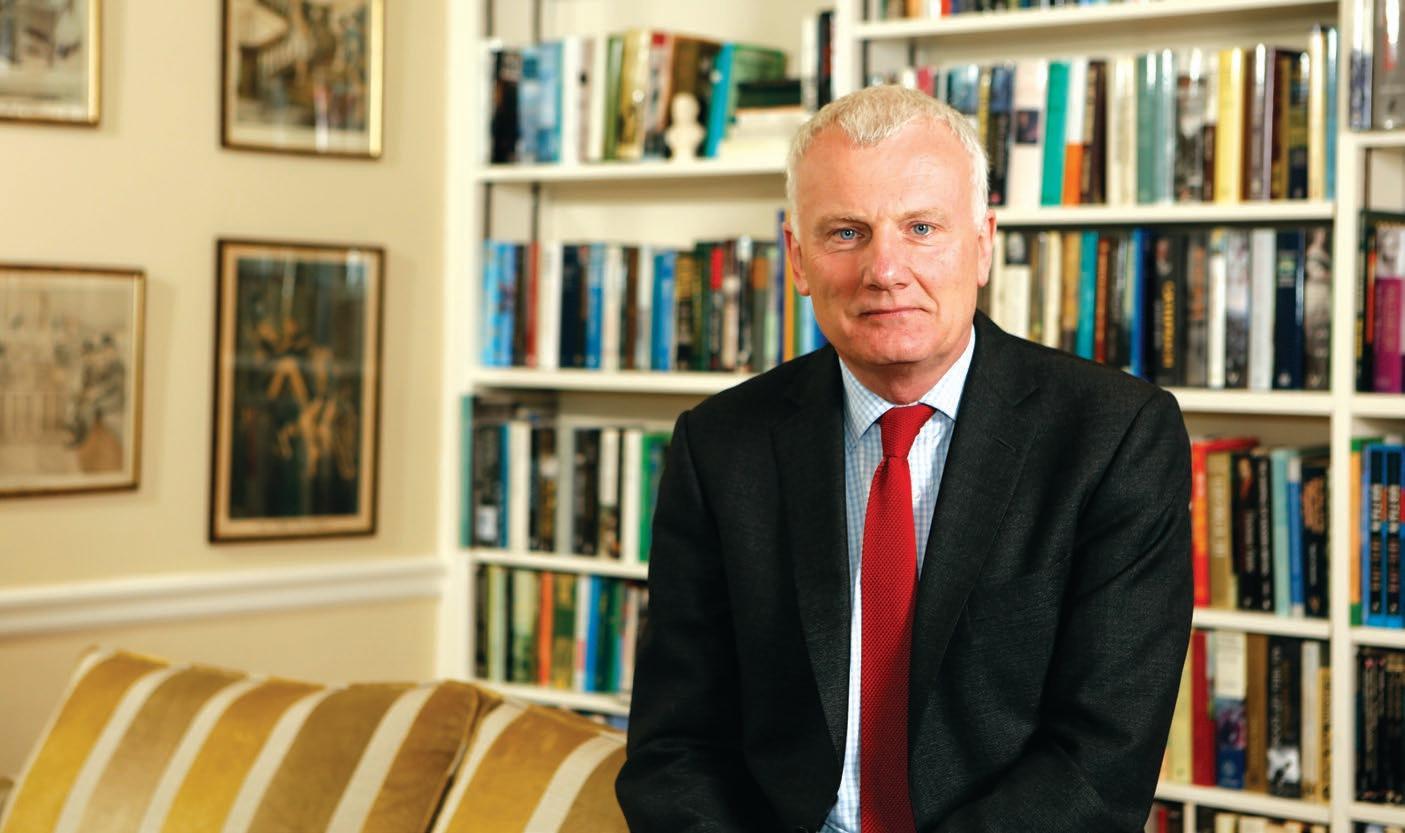Westminster and the Royal Navy in the 18th and 19th centuries Dr Michael Willoughby (KS, 1948-53)
wo hundred years separated the careers of the two OW admirals, George Legge and Richard Phillimore, featured in The Elizabethan’s summer issue of 1953. In that interval the School supplied the Navy with many other officers, of whom a good proportion became admirals, though others who would have expected to achieve high rank were prevented from doing so by disasters that overtook them in the earlier years of their service. In the account that follows it will be noted that most were scions of noble families. They entered the School at what would now be considered prep school age, remained there in most cases for one to three years, and then joined the Navy in their early teens, either directly as deckhands or via the Royal Naval Academy at Portsmouth. OW admirals frequently come out as ‘characters’. The earliest of those now considered, Edward Vernon (b. 1684), is widely known for his introduction of the daily ration of ‘grog’ (rum diluted
52
The Elizabethan Newsletter
Edward Vernon (b. 1684) is widely known for his introduction of the daily ration of ‘grog’ (rum diluted with water) for every junior rating. Edward Vernon
with water) for every junior rating. This term derives from Vernon’s coat of grogram, a coarse fabric of silk, of mohair and wool, or of these mixed with silk, often stiffened with gum (OED), and it has remained his nickname ever since. The measure was intended to minimise the drunkenness at sea that had been a major handicap to the Navy’s performance – and it succeeded brilliantly. Vernon differed from most OW sailors in being an intellectual, having excelled in the classics at school. As a lieutenant he served in H.M.S. Barfleur under Sir Cloudesley Shovell, but had fortunately left his command by 1707 and so avoided probable death in the storm which drove four of the Admiral’s ships onto rocks in the Isles of Scilly and resulted in the loss of some 2000 souls, including the Admiral himself. As Vice admiral of the Blue in 1739 he led the capture of Porto Bello in the Caribbean, a town described at the time as “the only mart for all the wealth of Peru to come to Europe.” This made him a national hero
